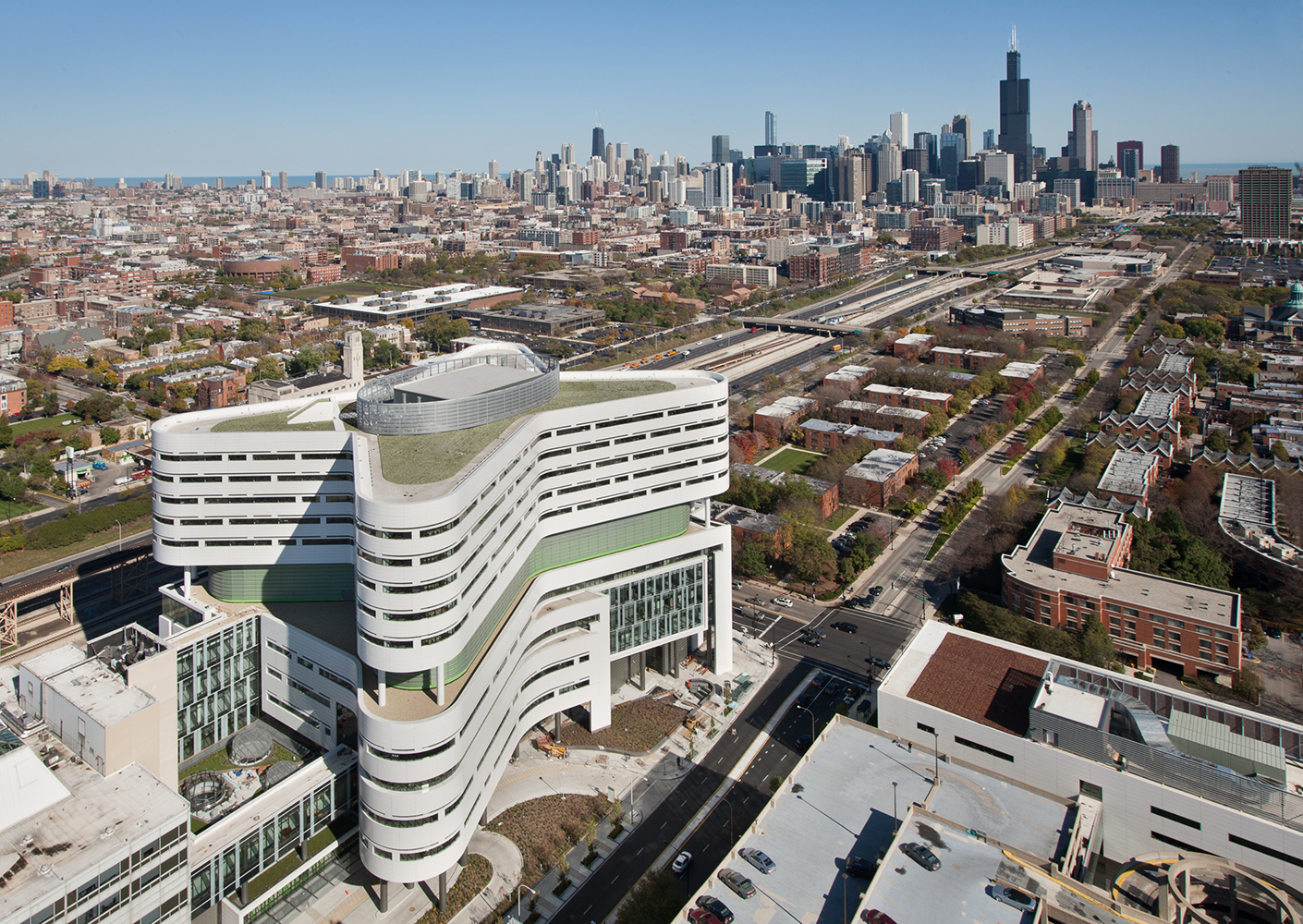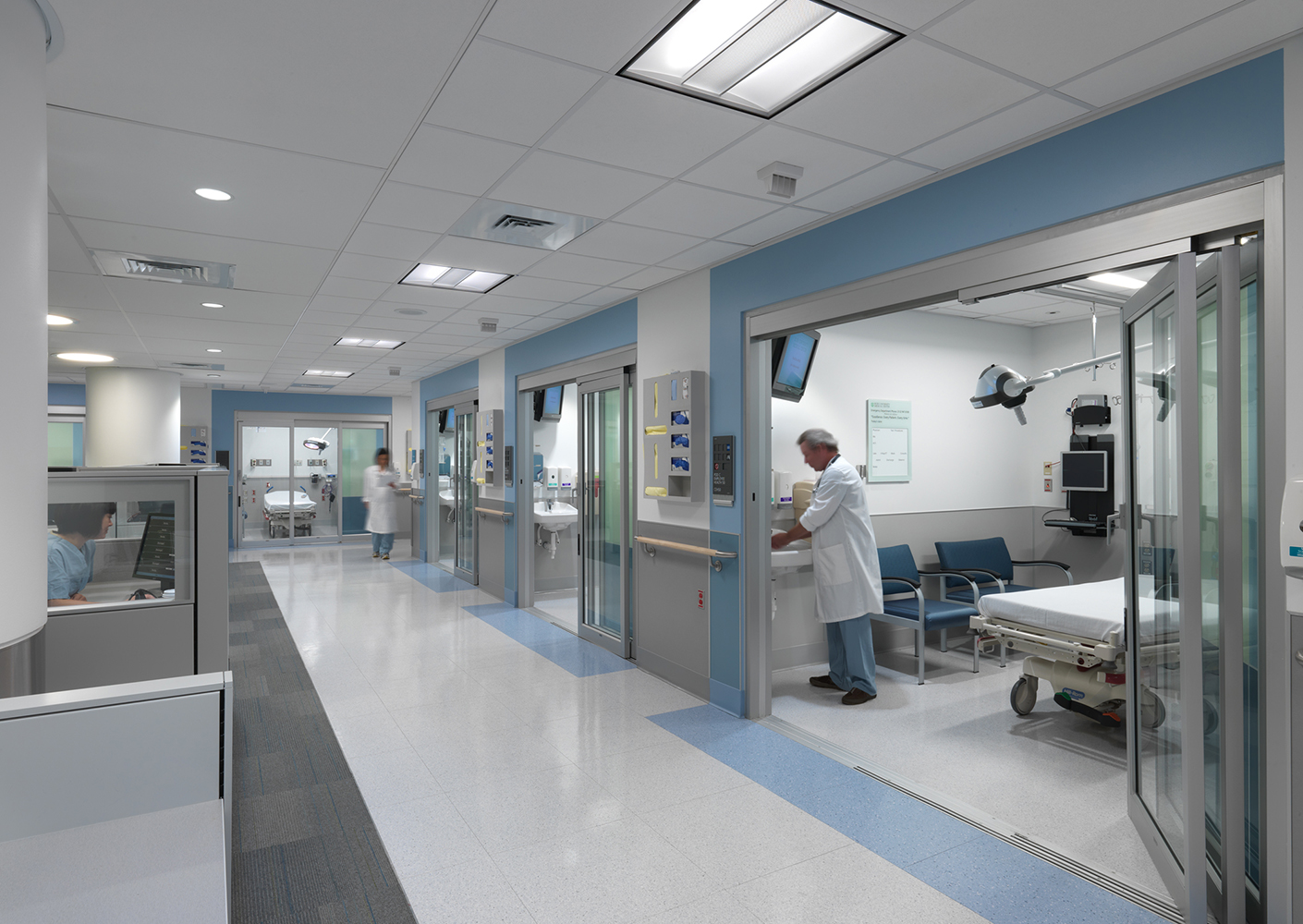Prepared for a patient surge
This week, Rush made changes to the emergency department that include a “forward (preliminary) triage.” This triage is being performed in a tent that’s been raised over the Emergency Department’s ambulance bay, creating an area for testing potential COVID-19 patients in isolation from general ED patients.
The forward triage area includes seating for possible patients, with each seat placed six feet away to ensure there is no cross contamination of patients. The area also includes a controlled entry point with a separate route into the hospital and negative airflow – all to ensure non coronavirus related patients never come into to contact with a COVID-19 patient or any related contamination.
These capabilities have become vitally important as the Medical Center’s implementation of its COVID-19 patient surge plan becomes imminent. A surge plan is used when a hospital’s patient volume has reached the point of over-capacity, requiring the hospital to use a unique process to manage the heightened number of patients.
As a part of this plan, Rush system clinics may begin to postpone all nonessential appointments and surgeries, depending on the number of possible COVID-19 patients seeking care and the needs of the hospital.
Rush has been collaborating with city, state and federal authorities to detect and coordinate the region’s response to epidemics and crises of every sort. With capacity to handle a sudden influx of patients, decontamination space and surge capabilities, Rush plays a primary role in safeguarding the region’s well-being.
Digital platforms offer virtual triage and options for concerned patients
In the last several years, Rush has developed a robust digital platform. Fully integrated with Epic, the electronic medical record system, a robust telemedicine platform has been deployed.
In the last week we began to provide access to care for worried well, non-acute potential COVID-19 infected patients, employees, and chronically ill non-acute patients to avoid health care setting exposure, looking for medical assessment.
Additionally, Rush researchers developed the Guardian program, a real-time tracking of regional Influenza like illness. With funding from the Department of Defense, Guardian uses EMR data to provide surveillance of the symptoms consistent with COVID-19.
The current novel coronavirus situation has led to the development of a forecasting model that Rush and others are using to estimate regional COVID-19 case volumes. Created through the Center for Quality, Safety, and Value Analytics, the Guardian models and updates with regional case counts and can estimate specific supply estimates and personnel needs. This can help health care organizations of all kinds understand where potential shortages of critical supplies could emerge.
“While COVID-19 and other infectious disease threats are deeply troubling and create tremendous anxiety, it is important to consider that all such new threats are ‘novel’ at first,” said Lateef. “It is organizations like Rush University Medical Center and others who not only take them seriously — preparing and drilling to mitigate risks as rapidly as possible — that are best equipped to serve as a community resource and help shape the response to protect public health. It is what we do.”





